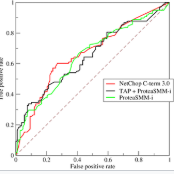Objectives: The purpose is to apply a previously validated deep learning algorithm to a new thyroid nodule ultrasound image dataset and compare its performances with radiologists. Methods: Prior study presented an algorithm which is able to detect thyroid nodules and then make malignancy classifications with two ultrasound images. A multi-task deep convolutional neural network was trained from 1278 nodules and originally tested with 99 separate nodules. The results were comparable with that of radiologists. The algorithm was further tested with 378 nodules imaged with ultrasound machines from different manufacturers and product types than the training cases. Four experienced radiologists were requested to evaluate the nodules for comparison with deep learning. Results: The Area Under Curve (AUC) of the deep learning algorithm and four radiologists were calculated with parametric, binormal estimation. For the deep learning algorithm, the AUC was 0.69 (95% CI: 0.64 - 0.75). The AUC of radiologists were 0.63 (95% CI: 0.59 - 0.67), 0.66 (95% CI:0.61 - 0.71), 0.65 (95% CI: 0.60 - 0.70), and 0.63 (95%CI: 0.58 - 0.67). Conclusion: In the new testing dataset, the deep learning algorithm achieved similar performances with all four radiologists. The relative performance difference between the algorithm and the radiologists is not significantly affected by the difference of ultrasound scanner.
翻译:暂无翻译



